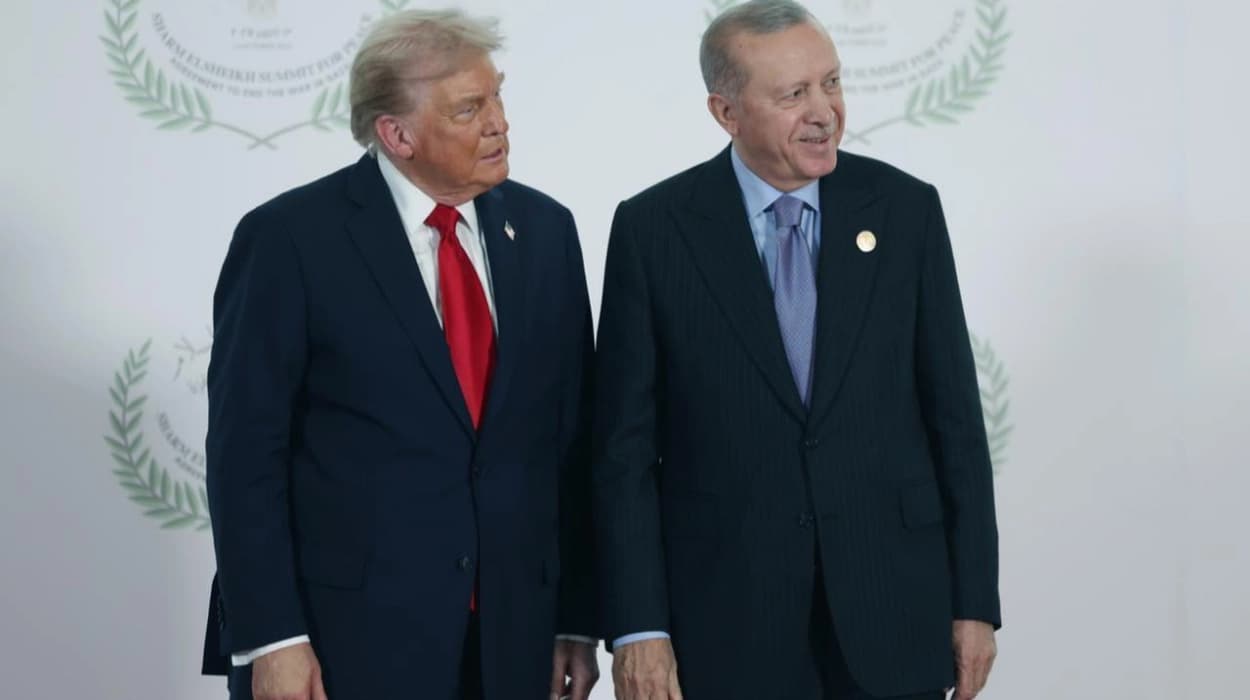A recent Congressional Research Service (CRS) report
highlights Türkiye’s distinct position as a “global swing state,” balancing
relationships with both Western and Eastern blocs while maintaining its NATO
membership. This new phase in US-Türkiye relations includes cooperation over
security, trade, energy, and regional diplomacy, reflecting pragmatic
collaboration amid structural mistrust.
Washington’s Recognition of Türkiye’s Strategic Role
According to a detailed report prepared by the Congressional
Research Service (CRS) for members of the US Congress, Türkiye is increasingly
viewed by Washington as a “global swing state.” The report, as covered by
Turkiye Today, emphasises Ankara’s ability to maintain multidirectional foreign
policy ties with both the West and the East, similar to other significant
countries such as India and Saudi Arabia that seek to leverage their
geostrategic positions in a competitive global landscape.
The CRS report explains that while Türkiye’s long-standing
NATO membership remains important for its security, the country actively
pursues partnerships beyond the Western alliance framework. This includes
applications to join BRICS and the Shanghai Cooperation Organization (SCO), signalling
an intent to maximise its diplomatic and economic leverage on multiple fronts.
Since Türkiye joined NATO in 1952, it has been a cornerstone
of the alliance’s southern flank. Its large and capable military, control over
the vital Bosphorus and Dardanelles Straits, and geographic proximity to
conflict zones in the Middle East and Eurasia render it indispensable to
Western defence strategies.
Past Frictions and Recent Shifts
The report also candidly addresses longstanding sources of
friction in US-Türkiye relations. Notably, one significant rupture occurred in
2019 when Türkiye procured the Russian-made S-400 missile defence system. As
reported by Turkiye Today, Ankara justified this purchase by citing delays and
unwillingness from the US side to supply advanced Patriot missile batteries and
associated technology transfers.
A landmark development occurred in May 2025, when the
Kurdistan Workers’ Party (PKK) declared its intention to disband its
four-decade armed insurgency, and shortly after, its Syrian offshoot, the
Syrian Democratic Forces (SDF), agreed to integrate into Syria’s national army.
This transition offers a potential framework for reconciling Turkish and
American interests in the region without new confrontations, although the
situation remains fragile amid ongoing factional violence.
Expanding Regional Influence and Diplomatic Engagement
Türkiye’s regional diplomacy has evolved considerably in recent years. The CRS report highlights marked improvement in Ankara’s relations with Saudi Arabia, the UAE, and Egypt since 2022, alongside easing tensions with Greece over maritime boundaries and energy rights. Ankara has also played a quiet but crucial role in advancing the Azerbaijan-Armenia peace process, which culminated in a White House ceremony in August 2025 marking the initialling of a draft treaty and launching the
“Trump Route for International Peace and Prosperity.”
This proposed transit corridor would link Azerbaijan and
Türkiye through Armenian territory, potentially enhancing Ankara’s influence in
the South Caucasus while limiting Iran’s and Russia’s sway. As per statements
by US Ambassador to Ankara, Tom Barrack, the US administration has actively
supported this initiative.
To prevent unintended military clashes, Türkiye and Israel
have established a military hotline reflecting overlapping zones of influence
and shared regional interests.
Economic and Energy Cooperation
Beyond security and diplomacy, US-Türkiye cooperation is
deepening in the fields of energy and trade. On 24 September 2025, Energy and
Natural Resources Minister Alparslan Bayraktar announced the signing of a
Memorandum of Understanding (MoU) on Strategic Civil Nuclear Cooperation
between the two countries at the White House. Bayraktar expressed hopes that
this agreement would generate mutual benefits by enhancing peaceful nuclear
technology cooperation, investment, and energy security as Türkiye diversifies
its energy mix and pursues a clean energy transition.
Additionally, as covered by Hürriyet Daily News, Türkiye and the US are jointly working on an updated strategy to reach a $100 billion bilateral trade target focusing on key sectors such as white goods, textiles, automotive, tourism, technology, and nuclear energy. This initiative builds upon earlier comprehensive reports produced in collaboration with Boston Consulting Group and brings business actors together to capture new market opportunities in a changing global economic environment.
The CRS report poses a fundamental question for policymakers in Washington: whether to pursue closer cooperation with Türkiye given its strategic and economic benefits or to be cautious due to Ankara’s hedging behaviour and complex internal politics. This ambivalence reflects a relationship that balances pragmatic collaboration with underlying structural mistrust.
As discussed by analysts in the Washington Institute and
the Atlantic Council, Türkiye remains the only global swing state which is
simultaneously a NATO member, a middle power, and an increasingly global
player. Under President Recep Tayyip Erdoğan, the country has diversified its
foreign policy, extending diplomatic, military, and economic ties across
Africa, the Middle East, Eurasia, and beyond, making it a pivotal actor for US
strategy to amplify influence across the Global South and Eurasia.
Recent High-Level Engagements
The evolving US-Türkiye relationship was also showcased during President Erdoğan's visit to the White House in September 2025, his first since 2019. According to Al Jazeera journalist coverage, the discussions included trade enhancements and regional security issues such as a Gaza ceasefire effort. The visit underlined renewed diplomatic engagement and set a positive tone for the partnership moving forward.
